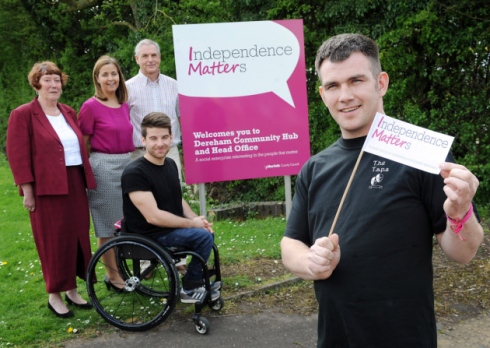Home
About Us
Page 2
The types of research instruments that can be purchased under this program are nuclear magnetic resonance systems, electron and confocal microscopes, mass spectrometers, protein and DNA sequencers, biosensors, x-ray diffractometers and cell sorters.
|
|
The minimum cost of the instruments will be $100,000 each, and the maximum amount that will be granted per application will be $600,000.
The institutions and organizations that will be eligible to submit an application under the Shared Instrumentation Grant Program are the following:
a) Public/State Controlled Institutions of Higher Education
b) Private Institutions of Higher Education
c) Hispanic-serving Institutions
d) Historically Black Colleges and Universities (HBCUs)
e) Tribally Controlled Colleges and Universities (TCCUs)
f) Alaska Native and Native Hawaiian Serving Institutions
g) Nonprofit Organizations Other Than Institutions of Higher Education
The Department of Health and Human Services, the mother agency that is funding the Shared Instrumentation Grant Program, is the nation's principal agency that is largely responsible for protecting the health of all Americans and ensuring the provision of fundamental health and human services to all people needing such services.
Shared Instrumentation Grant Program
Back to Page 1
About The Author Iola Bonggay is an editor of TopGovernmentGrants.com one the the most comprehensive Websites offering information on government grants and federal government programs. She also maintains Websites providing resources on environmental grants and grants for youth programs. |
Additional Resources
category - Health Grants
The Collaborative Islet Transplantation Registry Program
Harnessing Advanced Health Technologies to Drive Mental Health Improvement Program
National Institutes of Health funds the Improving Adherence to Treatment Regimens for HIV-Positive Adolescents and Young Adults
Combating Autism Act Initiative: National Interdisciplinary Training Resource Center Program
Follow @topgovtgrant
Social Entrepreneurship
Spotlight
Dereham Day Services Center Celebrates New “Social Enterprise” Model

Independence Matters, the largest council-owned community interest and day services company, celebrates the success of its new social enterprise model that boost its care and support services to more than 1,450 people across Norfolk.
